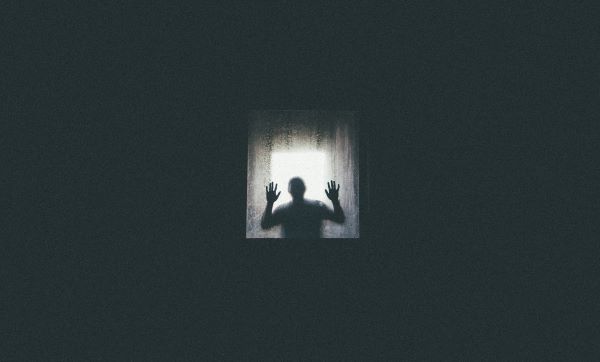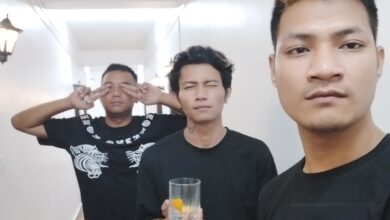Beyond statistics: Navigating the mental health odyssey

 In the labyrinth of modern life, where the pace is relentless and the demands are ceaseless, mental health has emerged as a crucial battleground. The statistics paint a stark picture: rising rates of anxiety, depression, and burnout are pervasive. Yet, the journey toward understanding and addressing mental health goes beyond these numbers. It is a profound odyssey that requires a nuanced perspective, one that extends beyond statistics and delves into the realms of mindfulness and holistic well-being.
In the labyrinth of modern life, where the pace is relentless and the demands are ceaseless, mental health has emerged as a crucial battleground. The statistics paint a stark picture: rising rates of anxiety, depression, and burnout are pervasive. Yet, the journey toward understanding and addressing mental health goes beyond these numbers. It is a profound odyssey that requires a nuanced perspective, one that extends beyond statistics and delves into the realms of mindfulness and holistic well-being.
The World Health Organisation estimates that by 2030, mental health issues will be the leading cause of disease globally in the form of a burdened pandemic. These statistics, however, only scratch the surface of the intricate tapestry that is mental health.
Dr Vikram Patel, a leading psychiatrist and professor at Harvard Medical School, emphasises, “Statistics are human beings with the tears dried off.”
This poignant statement underscores the need to move beyond the cold, hard numbers and delve into the lived experiences of individuals grappling with mental health challenges.
To navigate the mental health odyssey, it is imperative to embrace a holistic approach that acknowledges the mind-body connection. Mindfulness, rooted in ancient contemplative practices, has emerged as a powerful tool in this endeavour.
Jon Kabat-Zinn, the pioneer of Mindfulness-Based Stress Reduction (MBSR), defines mindfulness as ‘Paying attention in a particular way: on purpose, in the present moment, and non-judgmentally’. This intentional focus on the present moment becomes a compass in the tumultuous seas of the mental health journey.
The practice of mindfulness has gained traction in therapeutic settings, with empirical evidence supporting its efficacy. Dr Elizabeth Hoge, a psychiatrist at the Center for Anxiety and Traumatic Stress Disorders, attests, “The benefits of mindfulness meditation, increasingly popular in recent years, are supposed to be many: reduced stress and risk for various diseases, improved well-being, a rewired brain.”
Scientific research underscores the positive impact of mindfulness on the brain, including changes in the areas associated with self-awareness, compassion and emotional regulation.
Beyond the scientific realm, practitioners of mindfulness contribute valuable insights into the mental health odyssey. Tibetan Zen Master Lt. Rev. Thich Nhat Hanh advocates for mindfulness as a means of cultivating inner peace. He notes, “Many people think excitement is happiness… But when you are excited, you are not peaceful. True happiness is based on peace.” This perspective challenges the cultural narrative that often glorifies busyness and perpetual excitement, highlighting the importance of cultivating inner tranquility for sustainable well-being.
The mental health odyssey also necessitates a collective shift in societal attitudes and policies. Dr Rachel Remen, a clinical professor of family medicine at the University of California, emphasises the societal impact of mindfulness, stating, “When you recover or discover something that nourishes your soul and brings joy, care enough about yourself to make room for it in your life.”
This call for self-care echoes the need for societal structures that prioritise mental health, fostering environments where individuals can thrive rather than merely survive.
In workplaces, where stress and burnout have become endemic, mindfulness programs are gaining traction. Google, for instance, has implemented the “Search Inside Yourself” program, integrating mindfulness and emotional intelligence into the workplace culture. Chade-Meng Tan, a former Google engineer and the creator of the program, believes that mindfulness can lead to a more compassionate and effective workplace, stating, “Search Inside Yourself teaches tools for focus, for self-awareness, and for resilience — tools that change the course of one’s life.”
Educational institutions are also recognising the importance of incorporating mindfulness in the curricula. Dr Tish Jennings, an associate professor at the University of Virginia, conducted research on the impact of mindfulness programs in schools. Her findings suggest that students who participated in mindfulness practices exhibited improvements in attention, emotional regulation, and academic performance. This underscores the potential of mindfulness to shape the mental health landscape from an early age.
However, amidst the promising strides, challenges persist in integrating mindfulness into mainstream mental health discourse. Dr Zindel Segal, a professor of psychology at the University of Toronto and a leading figure in mindfulness-based cognitive therapy, acknowledges the need for wider acceptance, stating, “There’s a whole resistance to aspects of mindfulness that I think may reflect some concerns about secularism or perceived Eastern or Buddhist values creeping into the public sphere.”
Addressing these concerns requires demystifying mindfulness and framing it as a secular practice accessible to people of all backgrounds. The language used in mindfulness discussions should be inclusive, emphasising its universal benefits without imposing a particular cultural or religious framework. By doing so, mindfulness can become a bridge, connecting individuals from diverse backgrounds in the shared pursuit of mental well-being.
Mindfulness emerges as a guiding light, offering tools to navigate the complexities of the mind and foster well-being. As we journey forward, let us heed the words of Jon Kabat-Zinn, American Professor Emeritus of Medicine and the creator of the ‘Stress Reduction Clinic’ and the ‘Center for Mindfulness in Medicine, Health Care, and Society’ at the University of Massachusetts Medical School, said, “You can’t stop the waves, but you can learn to surf.”
In embracing mindfulness, we equip ourselves not to eliminate life’s challenges but to skilfully ride the waves of the mental health odyssey with resilience, presence and compassion. As it is rightly said, “Within you, there is stillness and a sanctuary to which you can retreat at any time and be yourself.” The need is to move beyond towards a life of positivity”.





